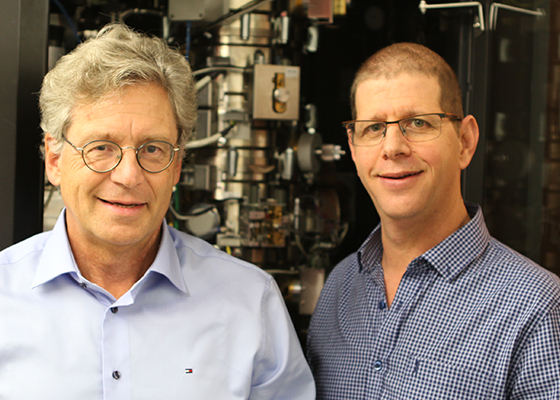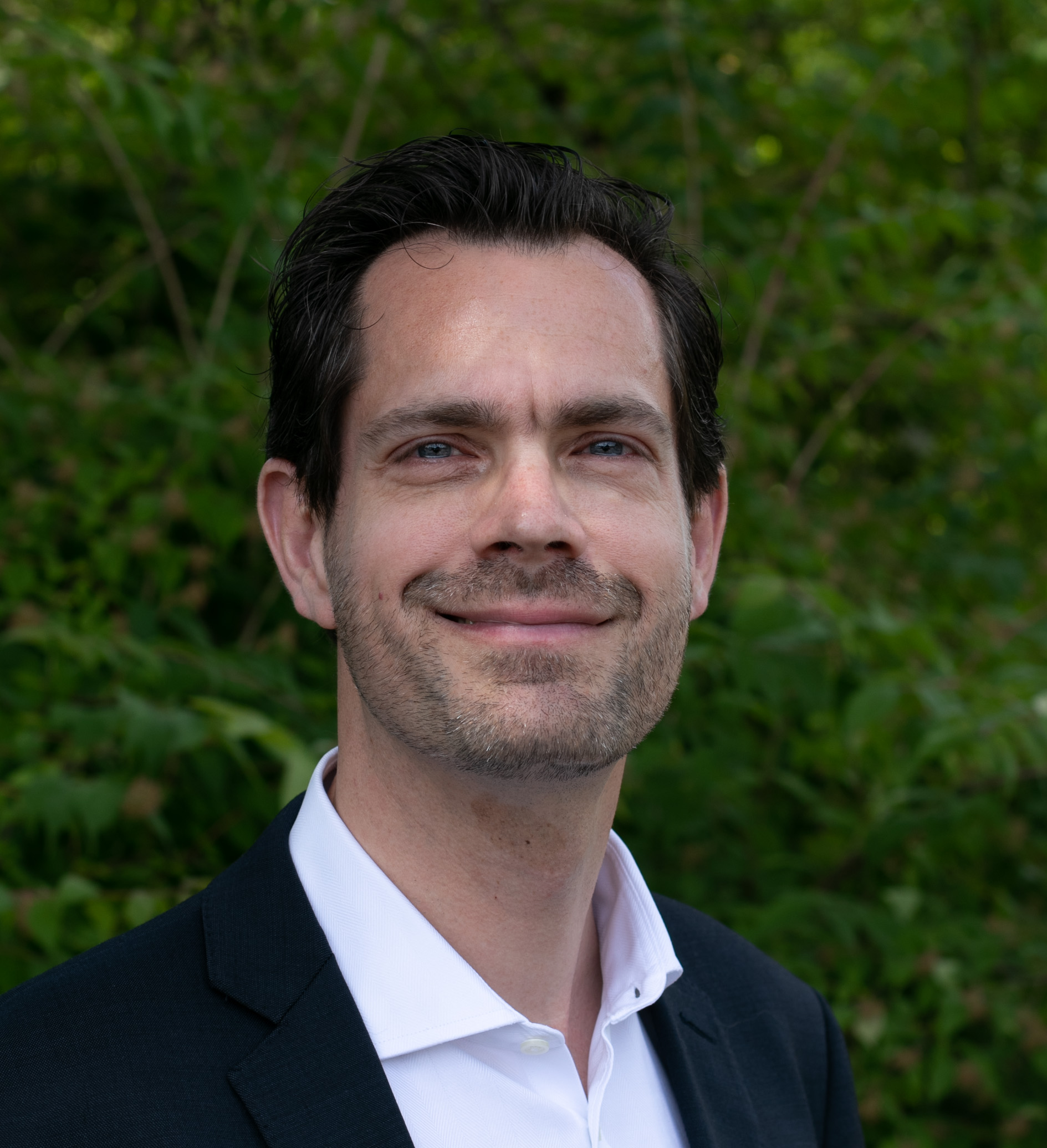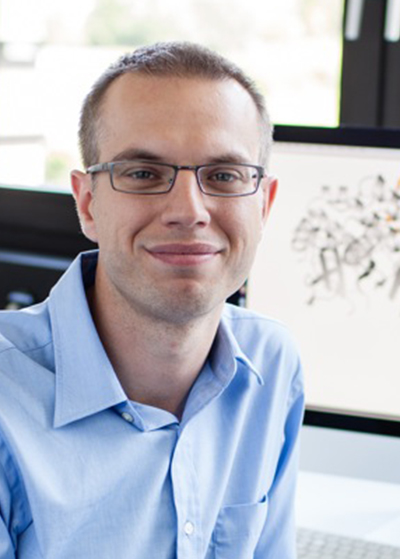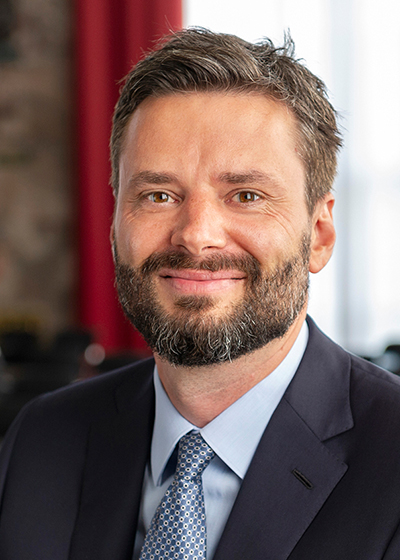Navigation auf uzh.ch
Navigation auf uzh.ch

Two biochemists from the University of Zurich (UZH) have together received an ERC Synergy Grant, a new funding instrument of the European Research Council (ERC). By combining complementary expertise and resources, the grants support groups of two to four outstanding researchers and their teams in conducting interdisciplinary research projects with up to 10 million euros for a maximum of six years.

Cellular receptor structures at very high resolution
The goal of Andreas Plückthun and Ohad Medalia is to develop a novel 3D high-resolution imaging method to make the structure of biological molecules visible in a cell. They are particularly interested in the cells’ surface receptors which transmit signals from the outside into the cell – a process which it is crucial to understand structurally in order to develop new drugs. But since the receptors are very flexible and adaptive, existing structural biology methods have reached their limits in observing such cellular processes in atomic detail. Together with teams from Spain and Denmark, the UZH scientists aim to develop a solution by combining protein engineering, electron tomography, mathematics and proteomics.
With its Consolidator Grants, the ERC promotes outstanding researchers with between seven and 12 years of postdoctoral experience. The researchers’ projects receive funding of a maximum of 2 million euros for a period of up to five years. Five UZH researchers have been awarded one of the highly competitive and sought-after grants.

Understanding human behavior under threat
Run away, sidestep, duck-and-cover, watch – in his project, Dominik Bach from the University Hospital of Psychiatry Zurich seeks to understand by which psychological and neural mechanisms humans navigate threatening situations and choreograph a wide range of possible actions. With the aid of virtual reality techniques giving study volunteers a sense of danger, the researchers will track their movements and record neural responses using magnetoencephalography. This should provide further insights into psychiatric conditions such as phobias or post-traumatic stress disorder, but also help professionals to train for hazardous environments.

Development of brain scavenger cells
As part of the innate immune system, macrophages are critical for detecting and “eating” pathogens. Melanie Greter from the Institute of Experimental Immunology and her team are interested in a unique type of macrophages which populate the brain. These cells originate from embryonic precursors and begin to carry out important tasks in brain development even before birth. This project aims to investigate the developmental requirements for the distinct brain macrophages and their functional specializations at different stages of life. Furthermore, the team intends to gain a new understanding of their function in different brain diseases.

CRISPR 2.0: next-generation molecular tools
Bacteria have various mechanisms with which they defend themselves against viral infections. One such antivirus system, CRISPR-Cas, has been developed into a powerful genetic engineering technology that has revolutionized basic research, biotechnology and medicine. The technology is very efficient and specific, but its capabilities can be limiting in certain applications. Martin Jinek and his team from the Department of Biochemistry will look beyond the already-known CRISPR-Cas systems and investigate the molecular mechanisms of some of the lesser-known bacterial genetic defense systems. Their aim is to develop new molecular tools.

Controversial aspects of modern trade agreements
After decades of trade liberalization, tariffs have reached historically low levels so that there is not much scope for further tariff cuts. As a result, modern trade agreements now largely revolve around non-tariff issues in an attempt to achieve further economic integration elsewhere. In this project, Ralph Ossa from the Department of Economics studies the most controversial aspects of such deep integration agreements, namely investor protection, regulatory cooperation, and intellectual property rights protection.

Popular backlash against international institutions
Stefanie Walter from the Department of Political Science explores how national referendums aimed at reversing international integration, e.g. the Swiss mass immigration initiative or the British Brexit vote, reverberate in other countries. When and how does such a vote encourage or deter similar demands abroad? How are these contagion effects shaped by domestic elites and discourse? To what extent do the remaining member states accommodate the referendum country’s requests during the disintegration negotiations? The project will generate insights into how the growing popular backlash against international institutions affects the stability of the international system.